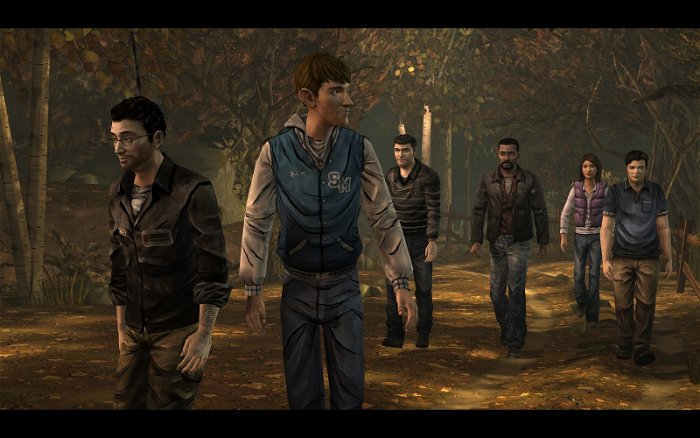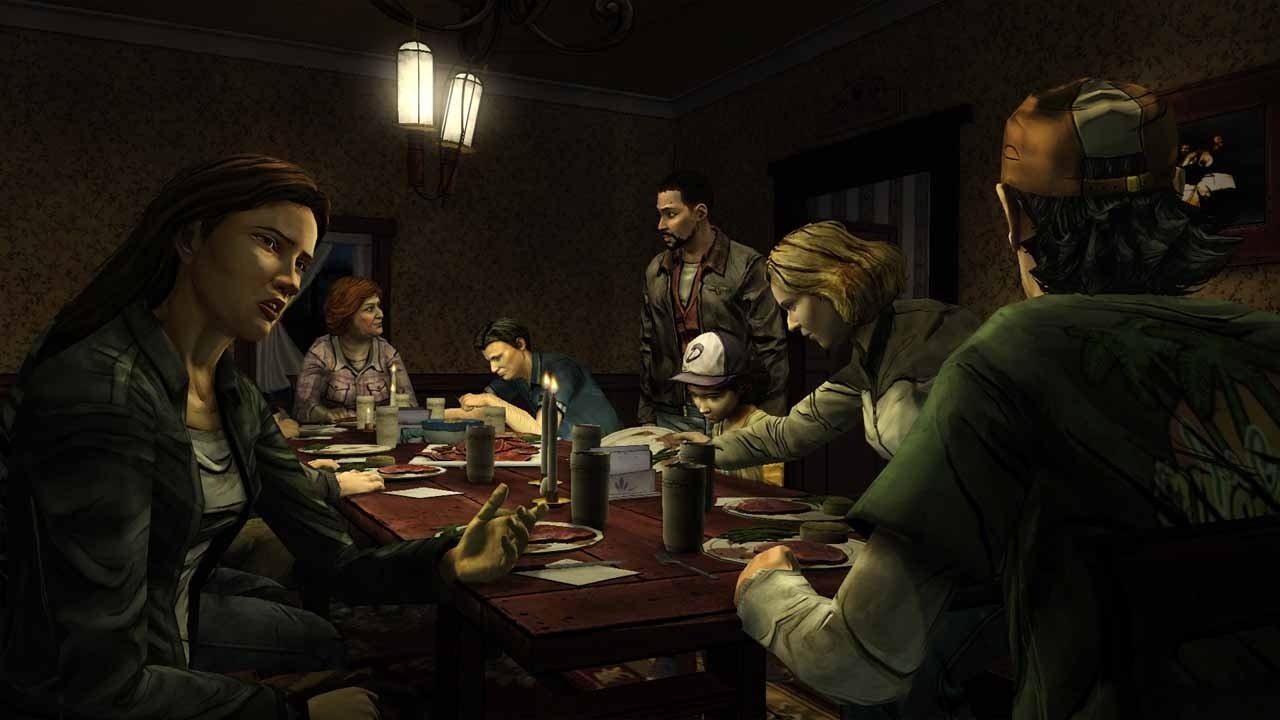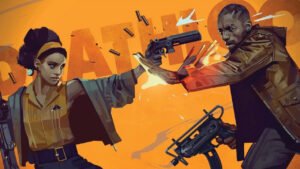Halloween is too much fun to contain in a single day so, throughout the month of October, First-Person Perspective will focus exclusively on spooky, scary or otherwise holiday-related games.
These four columns will make up . . . OKTERROR.
***
This article contains minor The Walking Dead spoilers.
The rest of Okterror is about the usual stable of monsters, but this entry is a bit different. As much as ghosts, vampires and zombies (yes, this game does have zombies too, but bear with me) can be frightening, they all pale in comparison to the most terrifying creature of all: the human.
By taking the concept of a zombie apocalypse and making it as much (if not more) about fighting for survival against other people as it is about struggling with the undead, The Walking Dead — a bad comic book and mediocre TV show — gave people a fairly unique take on an overly familiar genre. The only problem is that both version are badly written.
How do you act like a “good” person when you need to choose between murdering a cannibal in front of a little girl or letting him go to preserve your own conscience?Telltale Games’ unexpectedly fantastic videogame adaptation of The Walking Dead has redeemed the premise by fitting its world into the medium its best suited to, taking full advantage of interactivity to explore the most frightening aspects of a world where morality and survival instincts fight for precedence. The Walking Dead game is effective horror, even if it doesn’t offer big shocks up front. The zombies themselves are a bit scary, to be sure, but they pale in comparison with the much more real terror of what their presence does to the humans trying not to be bitten by — and turn into — one of them.
The game’s protagonist, Lee Everett, is surrounded by a cast of characters that all have their own motivations, loyalties and personalities. Some of them are quick to anger, some of them aren’t particularly smart and some of them would gladly sacrifice someone else in their ragtag group of survivors for a chance at getting what they want. Lee, for his part, is whatever the player makes of him. Telltale’s best design decision is the introduction of a timed selection of choices, brought up when Lee is expected to remark on something or choose how to deal with a given situation. By giving players only a limited amount of time to pick what they want Lee to do, The Walking Dead creates innumerable moments of unbearable tension that almost never lead to favourable outcomes (a memorable example sees Lee forced to make a split-second decision between saving the life of one friend or another as zombies scramble to pull them through a boarded-up window).
I make Lee’s decisions in the most even-handed, rational way I can manage. At first, The Walking Dead made me think that many of the choices it would offer would fall into the usual set of role-playing “personalities” — upstanding good guy, charismatic scamp or horrible jerk. This, luckily, isn’t the case. The game, like any solid zombie story, confuses any sense of morality by focusing on how the darkness of human nature can make situations far more complex than a simple binary of good and evil. This type of ambiguity is highlighted through situations where other survivors are just plain selfish or bad. How do you act like a “good” person when you need to choose between murdering a cannibal in front of a little girl or letting him go to preserve your own conscience?
The world, after the breakdown of society, loses any pretense of civility and becomes something much more barbaric. That none of the “bad” characters are presented as caricatures only heightens the sense of futility and depression the game establishes. Even the most evil of the people met throughout The Walking Dead‘s chapters aren’t mindlessly bad — they’re simply desperate, just like Lee and the people he wants to help live through the zombie apocalypse.

It all works to make me ask questions of myself that no other horror game has ever presented. How terrifying is it to think that being virtuous or selfless isn’t enough to retain your humanity? If society broke down tomorrow would I be able to hold onto the values and morals I try to exercise in everyday life or would extreme circumstances force me to do the sort of horrible things that Lee does just to get by?
These kind of choices and their very real implications represent true horror. To me, having to navigate them — and think about what they say about both myself and other people — is much more chilling than any zombie ever could be.
***
Reid McCarter is a writer and editor who lives and works in Toronto. He has written for sites and magazines including Kill Screen, The Escapist and C&G Magazine. He founded, writes and edits the videogame blog digitallovechild.com and is Twitter-ready @reidmccarter.




